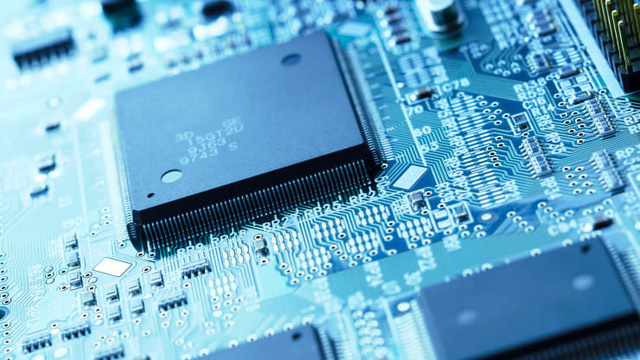Crushed by Mr. Trump, China’s semiconductor industry is still bitterly swallowed and this is the reason
- Tram Ho
CNBC quoted analysts as saying that Beijing will face increasing challenges in consolidating its own semiconductor industry. Semiconductors are extremely important components in today’s consumer electronics. As more “smart” and Internet-able devices are available, semiconductors become even more important in new areas, such as self-driving cars. That is why China wants a strong position.
However, China is isolated from its supply of critical chip components. Even buying and selling new-generation chips is becoming a difficult problem for many Chinese businesses, including the world’s largest phone maker Huawei.
” Without semiconductors, China cannot become a technology powerhouse. In fact, China’s largest enterprises cannot sustain themselves without actually possessing research and development capabilities. semiconductor development and manufacturing, “said Dan Wang, a technology analyst at Gavekal Dragonomics, a Beijing-based research firm.
The trade war shows China’s dependence on foreign chips, which are dominated by the US. Earlier this year, Washington issued a rule that required foreign manufacturers using chips with US elements to obtain permission before selling them to Huawei. There is no indication that the US will issue these permits.
Huawei, the world’s largest smartphone maker, designs its own chip called HiSilicon. However, the ingredients that actually make up it are manufactured by Taiwan’s TSMC. In this process, TSMC uses American-made chip-making equipment. Therefore, Huawei will not be able to access TSMC’s products after September 15. The Chinese giant doesn’t even have an alternative to US sanctions.

The US plays an important role in the global semiconductor supply chain, which isolates China.
For now, the US is considering adding SMIC, another giant in China’s chip industry, to the blacklist as it did with Huawei. If that turns out to be true, it will be another blow to the Chinese semiconductor industry. SMIC will not be able to create cutting-edge chips and will immediately be outstripped by rivals such as TSMC or Samsung Electronics of Korea for several years.
The semiconductor industry has an extremely complex supply chain. It’s not just about chip manufacturing, but it’s also about design firms as well as the businesses that make machines to make chips. TSMC and Samsung are leading names in chip manufacturing globally.
However, when it comes to design tools, the US is dominant. Dutch company ASML has produced a machine that uses ultraviolet ultraviolet light (EUV) to create the most advanced chips available today. Earlier this year, the US pressured ASML not to sell the device to SMIC. That shipment never reached China.
Without these tools, China’s semiconductor industry will be far behind. China’s problem is its dependence on foreign essential equipment for chip manufacturing. When under pressure from the US, China can only swallow bitterness instead of building a production equivalent to the US as it does in many other areas.
” Under pressure from the US, China lags behind and struggles to catch up in the industry before looking forward to achieving success ,” said Dan Wang.
However, not China has been cornered. In the long run, China’s huge market, both in terms of population and the number of devices, could become a powerful driving force for the industry. Meanwhile, in the IoT era, many devices need a chip, but that is not necessarily the most advanced. This can help businesses in this country to withstand the current difficult period.
” China is a huge market. So even if it only serves the needs of the Chinese, domestic chip suppliers still have plenty of opportunities. A huge share of the market will be left behind. the supply from abroad is lost, “said Sze Ho Ng, an analyst at China Renaissance Investment Bank.
Even without new technology updates, demand for Chinese chips will increase. Dan Wang cites the so-called Internet of Things, for example, but traffic lights are connected to the Internet so that they coordinate better based on the actual traffic volume of cities. The chips used for these devices are not necessarily the most advanced, and that could be the area where Chinese companies dominate.
” A lot of that doesn’t need to be on top, like the microprocessor in traffic lights. A lot of the technology, at a decent level, has enough to fulfill demand. This is exactly where the Chinese companies have advantages, “said Wang.
Reference: CNBC
Source : Genk
